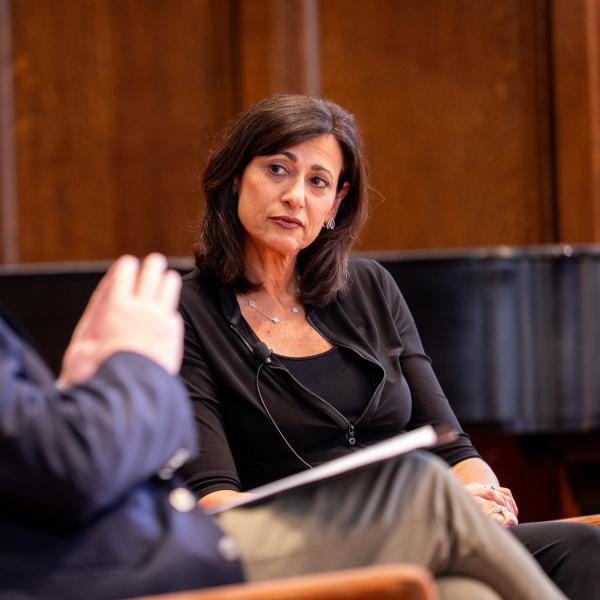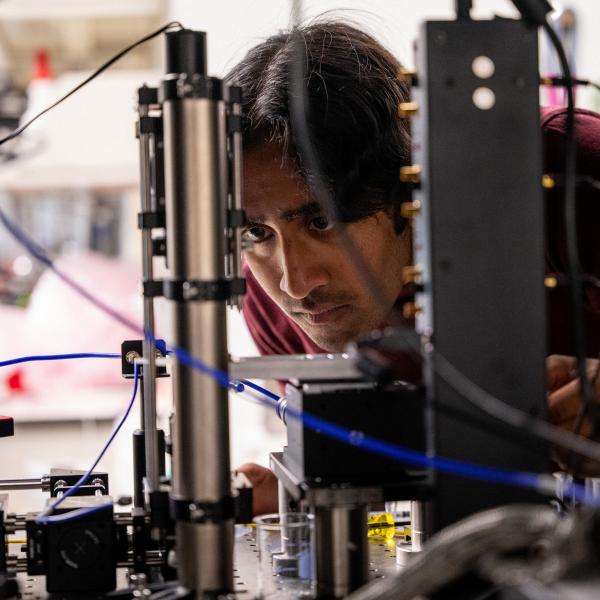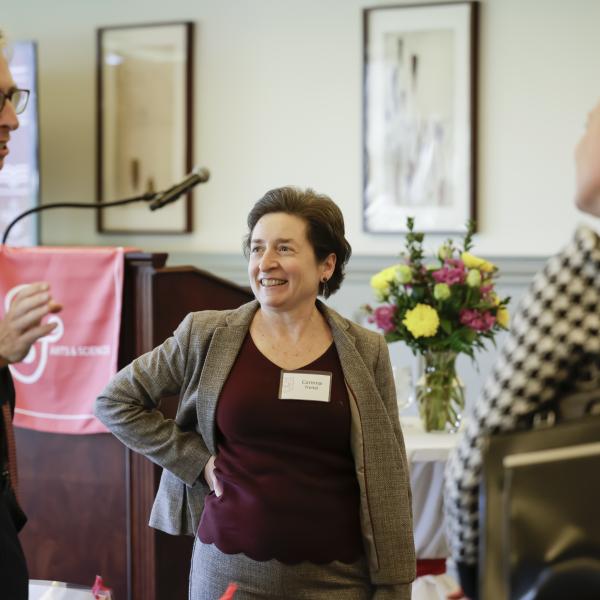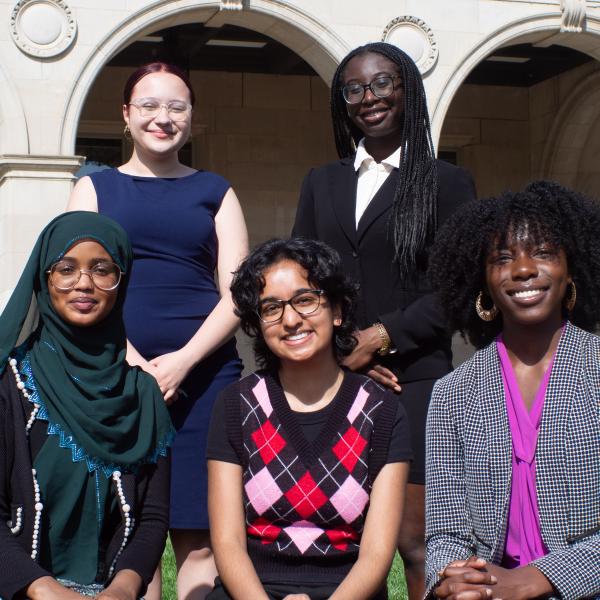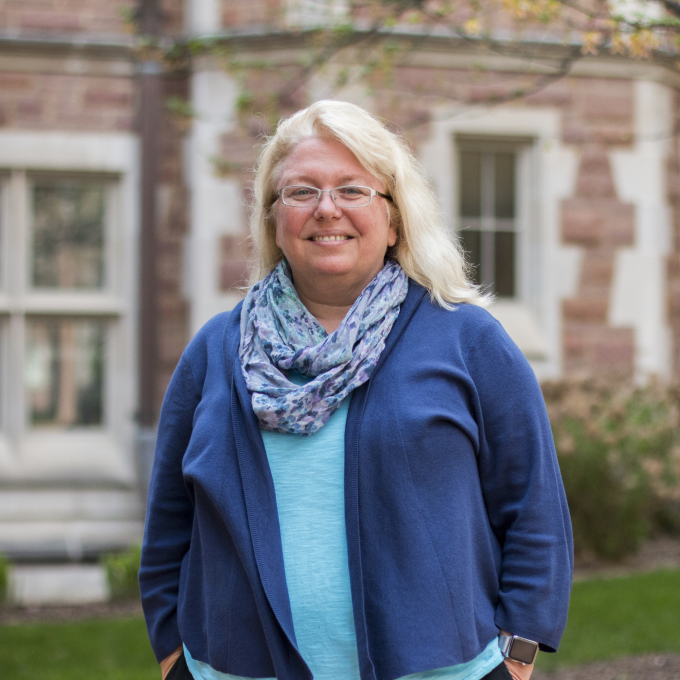
Deanna Barch, chair and professor of psychological and brain sciences, has been named the next vice dean of research in Arts & Sciences, effective July 1. A leading scholar in the field of cognitive and language deficits in disorders like schizophrenia, Barch recently co-chaired Arts & Sciences’ strategic planning steering committee and is currently co-chairing its implementation efforts. Barch succeeds William B. Tolman in this role, which is charged with advancing the school’s research, scholarship, and creative practice enterprise. A faculty committee chaired by David Cunningham led the internal search that identified Barch as the leading candidate.
As vice dean of research, Barch will identify and develop policies and practices that will help faculty build strong research programs and increase external research funding. She will bring new focus to fostering innovative collaborations and research partnerships, as well as enhance resources to help faculty identify funding opportunities, develop competitive grant proposals, and advance their scholarship.
“We are a school with incredibly brilliant, motivated, and caring scholars centered in a university with outstanding infrastructure and collaborative colleagues, in a region of the country with immense cultural, intellectual, and social resources,” Barch said. “This fact will continue to make Arts & Sciences at Washington University a leading center for advanced research that pushes the boundaries within and between disciplines and which generates knowledge that improves our world.”
Barch was elected to the National Academy of Medicine in 2020, one of the nation’s highest recognitions in the fields of health and medicine. Her current research is focused on understanding the interplay among cognition, emotion, and brain function to better understand the deficits in behavior and cognition found in illnesses such as schizophrenia and depression. In particular, Barch is interested in determining the cognitive, emotional, and neural bases of risk for the development of schizophrenia and depression, potentially as a means of developing better preventive approaches. She is an investigator in the Adolescent Brain Cognitive Development (ABCD) study, part of the largest long-term study of brain development ever conducted in the United States, which in 2020 received an additional $13.7 million in funding from the National Institute on Drug Abuse. Web of Science named her to its 2021 list of Highly Cited Researchers.
Barch is eager to learn more about the pathbreaking research conducted by scholars and creatives in Arts & Sciences. “My vision for research in Arts & Sciences is that every faculty member, postdoctoral fellow, and student has the resources and support to achieve their fullest potential in research, scholarship, and creative practice, elevating the impact and reach of the work being done in Arts & Sciences, and supporting our work as a preeminent school of Arts & Sciences,” Barch said.
“Deanna is an innovative and highly accomplished scholar who will bring to this role many years of experience as the chair of one of our largest academic departments,” said Feng Sheng Hu, dean of Arts & Sciences. “Scholarship that reaches a broad public and fosters new understanding and discovery is a foundation of our mission in Arts & Sciences. I look forward to working with Deanna to find ways to further support our outstanding community of scholars and researchers.”
